Metamorphosis: The Transformation Within The Latinx Film & Theatre Association
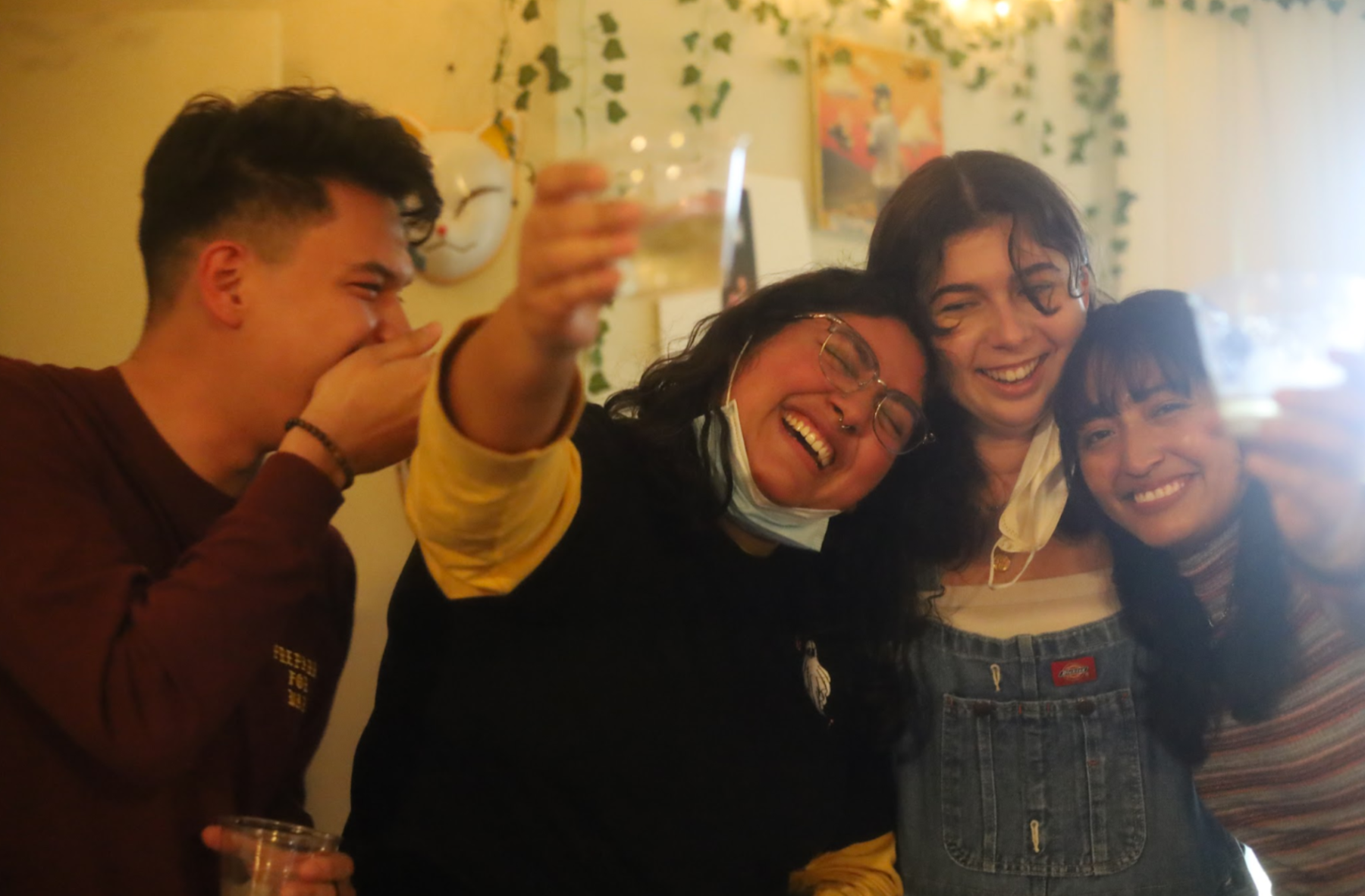
Photo Provided by the Latine Film & Theatre Association Historian
“Joining LFTA, I guess I really started feeling like my ideas and my stories were validated and accepted… I feel like I am here for a reason. My stories do matter to people.”
With UCLA’s Latine Film and Theatre Association’s (LFTA) annual showcase officially over, this revelation shared by Deyri Chacon couldn’t be better put.
Deyri is a fourth-year Film,Television and Digital Media major who’s been with LFTA since fall of 2019. Her words embody the theme of LFTA’s recent showcase: Night of Cultura. The theme, “Metamorphosis: The Transformation Within,” describes the all-too-familiar journey of internal change and growth that the characters in all of the original short films and plays undergo.
However, as Deyri’s words make clear, this theme of “Metamorphosis” can also be found off-stage, within the members that make this show of Latine art possible.
Deyri shared these words with me and the other four seniors—Karlie Diego, Alan Gallardo, Natalia Delgado, and Mariah Hernández—who have been in LFTA since their freshman year. As their time with LFTA is nearing its end, I asked them about the “metamorphoses” that they’ve witnessed and experienced with LFTA.
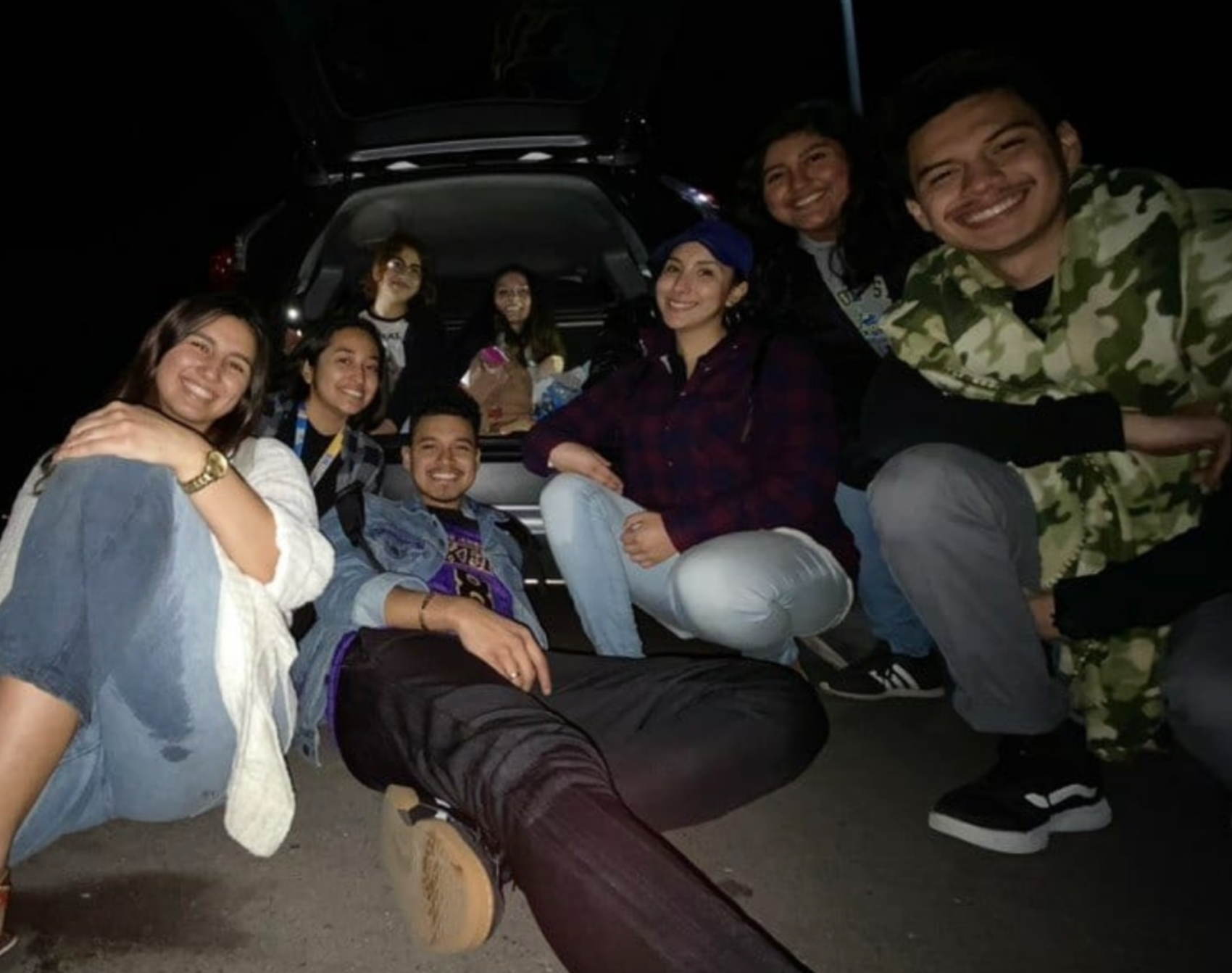
Photo Provided by the Latine Film & Theatre Association
As freshmen in 2019, LFTA seemed to offer something different to each of the five members at the very beginning of their UCLA journeys.
For Karlie, a fourth-year English major excited to take a much-deserved gap year after this spring, LFTA initially sounded like a club where people got together to watch movies (she was wrong).
“I came for something, but I got something better,” she said.
Her fellow English major, Mariah, wasn’t as confused about LFTA’s mission. Mariah, who hopes to go abroad to teach English to students in Spain, knew that LFTA could be a place where she could explore her lifelong interests of storytelling and entertainment.
“[As a kid], I just didn’t have the outlet for it. I was somewhat into theater in middle school, but then I got to high school and I hated theater because it was so… white. It just wasn’t my thing.”
To Deyri, LFTA looked like a safe space where she wouldn’t be judged for her background.
“I felt like I wouldn’t be judged for [my family’s immigrant background] in a community like this.”
Deyri opened up about comments she’d get from her classmates growing up, and admitted that this was a big reason as to why she didn’t join any of the other film clubs on campus.
“It was always in the back of my head. ‘I’m different, I’m different.’ But I wasn’t scared here.”
Alan also saw LFTA as a place where he would be safe to be himself. A fourth-year Communications major and Luis Miguel enthusiast, Alan knew that it was important for him to find a community he identified with.
“It’s that same idea of being Latine in general and not being judged. I wanted to go somewhere where I could work on stories that meant something to me.”
He shared that he tried to start a film club in high school, but the lack of interest made it difficult for his club to take off. Now, he’s the co-chair of a Latine film club with over 60 members.
“Since I was a kid, I’ve been wanting to go into film. But I never had that community. It was always me forcing my brother and my cousin to be in my projects. I was always looking for that community.”
Community was the exact thing that attracted Natalia, a fourth-year Film,Television and Digital Media major excited to return to the Bay and her beloved dog after graduation. Natalia found LFTA’s community and mission to create Latine art to be exactly what she was looking for in college.
“I feel like [LFTA] was a space that I’d never seen before. I never saw myself doing [film and theater] solely because I never saw Latinos doing that growing up. It was cool to see that there was a place on campus that was not only for the art that I love to do, but [also had] the community that I loved to be a part of.”
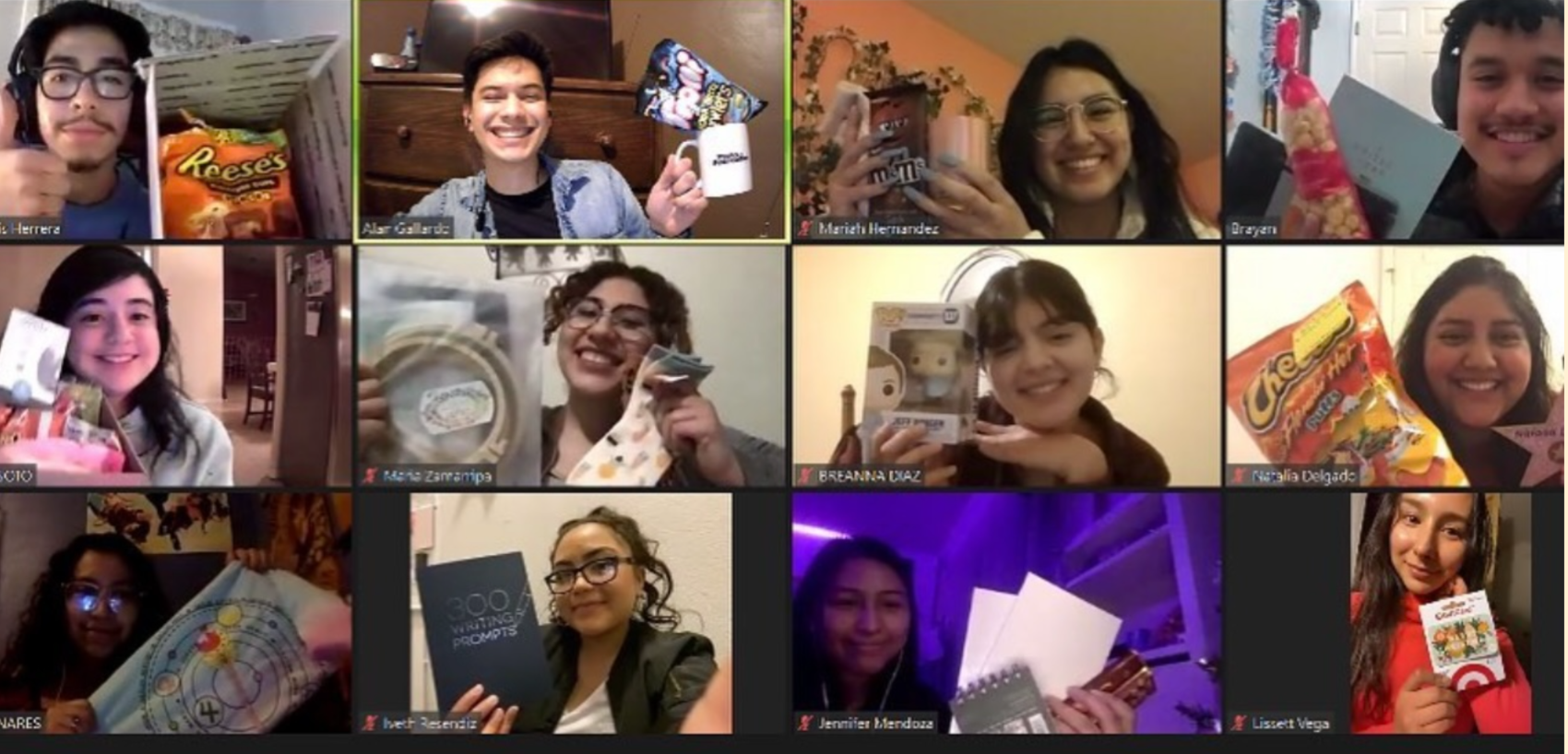
Photo Provided by the Latine Film & Theatre Association
However, this home changed when the pandemic interrupted their freshman year. Like the rest of the campus, LFTA met virtually before returning in 2021. So, when the five returned with only a handful of other returning members, they knew that they had serious work to do to make sure that LFTA continued to grow into the organization they wanted it to be.
Prior to 2018, LFTA was known as “Night of Cultura.” Rather than making their own art, the club mostly worked on producing a showcase where outside Latine artists could submit and share their work. That started changing when the five joined in 2019.
Natalia recalls how, as a freshman, she pitched the initial idea of LFTA making their own short films—something the club had never done before. “I remember being like, ‘Can we make a short film?’”
Even though the pandemic put a halt on this idea—the club was in the beginning stages of producing Alan’s short film, Meat Lover—it was something that they were determined to do when they returned to campus. Upon returning, they produced three original short films throughout the course of their junior year: Meat Lover, Pledge, and Como Quisiera.

Photo Provided by the Latine Film & Theatre Association
“That was crazy that as freshmen we had the ability to stir the org,” Natalia said.
The returning members were also a part of changing LFTA’s community structure. As Deyri described it, LFTA changed from feeling more like a “group” into feeling like a “family.”
“A lot of people started joining!” Mariah shared when remembering how quickly things changed when returning to campus. “I was happy to see that there were more people joining the space.”
As LFTA’s membership began to grow, so did their visibility on campus. Alan told me that students from other colleges noticed LFTA’s work and reached out to him for guidance on how to start their own Latine film clubs.
People were noticing the club and they were inspired.
“A lot of that is a testament to Natalia and Alan as chairs and what they’ve done to build the club up,” Mariah gushed.
“All the hard work they’ve done to push LFTA to the next steps. I feel like they really defined a presence here on campus, and I really think it’ll outlast us and our time. It’s exciting.”
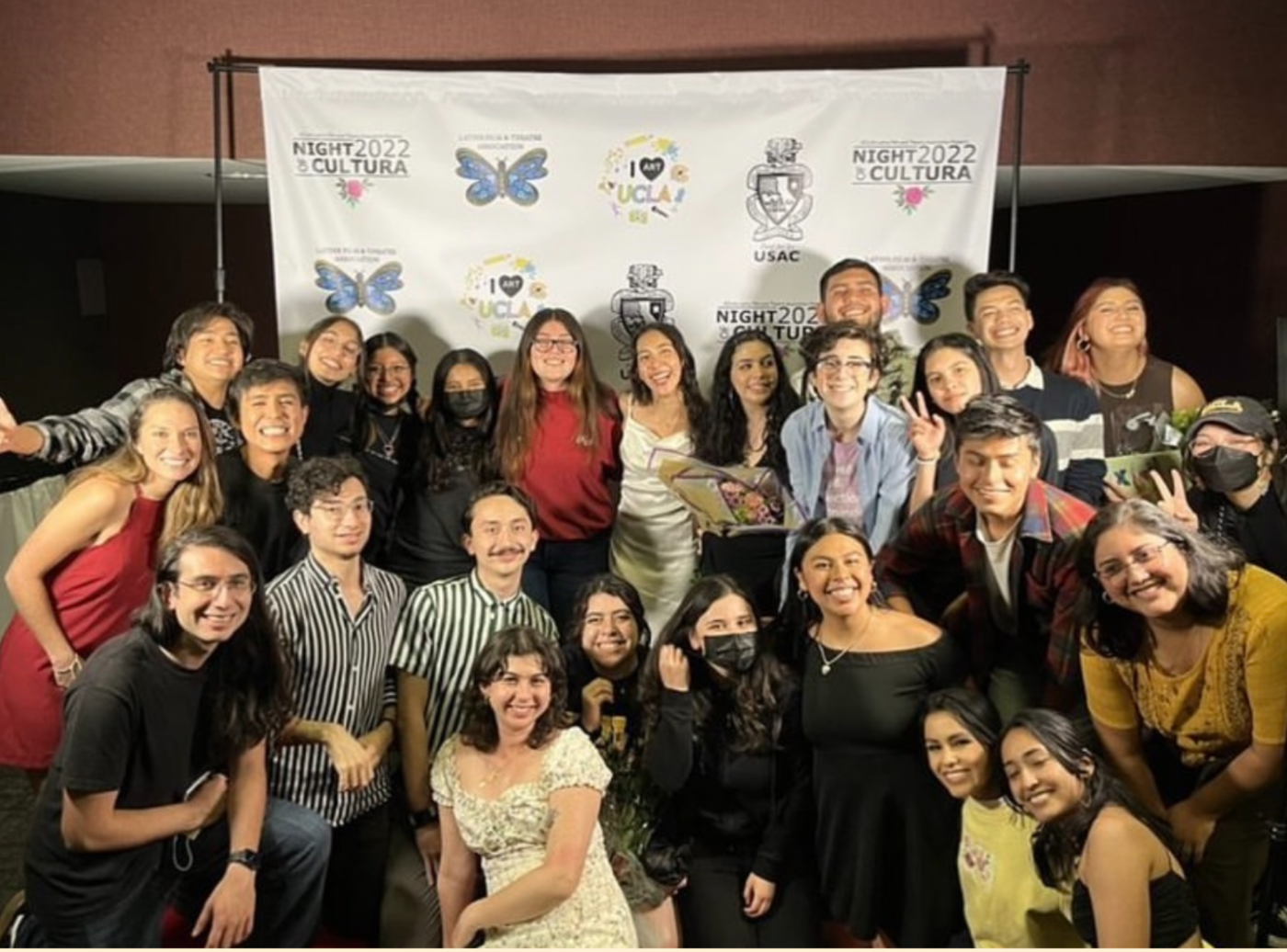
Photo Provided by the Latine Film & Theatre Association
Before ending the interview, I asked the five to share what they’ve felt they’ve accomplished with LFTA, and how LFTA played a part in their own “metamorphoses.”
Karlie, the lead actress in Kyra Saldaña’s play Love Language, said that she learned that she loves production and costume design—both of which she was in charge of for the short films The Intrusion and Ni En Mis Sueños.
As for sharing her own stories, she says she’s still working on it. “Hopefully in the future I’ll be able to do something of my own.”
And, of course, she’s proud of the family she’s been a part of. “I just got a community. Especially with the younger members. They’re just so cool and inspiring. They look at us and they think we’re cool, but I think they’re cooler. They’re just so full of life, and funny, and creative. I’m glad I got to meet them.”
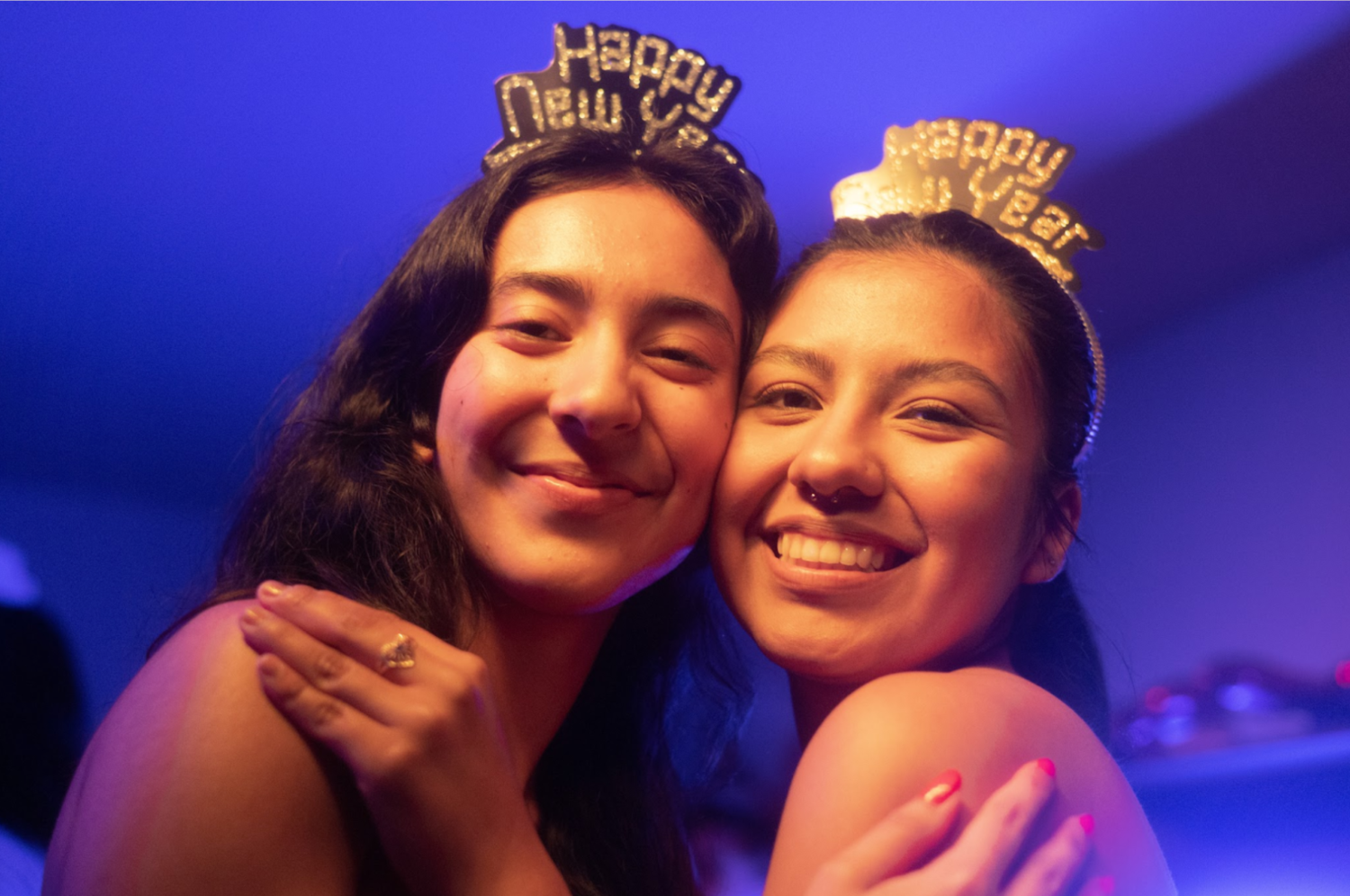
Photo Provided by the Latine Film & Theatre Association
Mariah, who wrote and directed Self Love, Mija!, said that she became more confident in her abilities as a Latina artist.
“I got more confidence to say the things that I wanted to say. I hadn’t really thought of my stories as something that are worth sharing. That’s something I’m still in the process of learning. It was really important to have a community like LFTA to be there to make me realize that I do have talent, and I do have interesting things to say.”
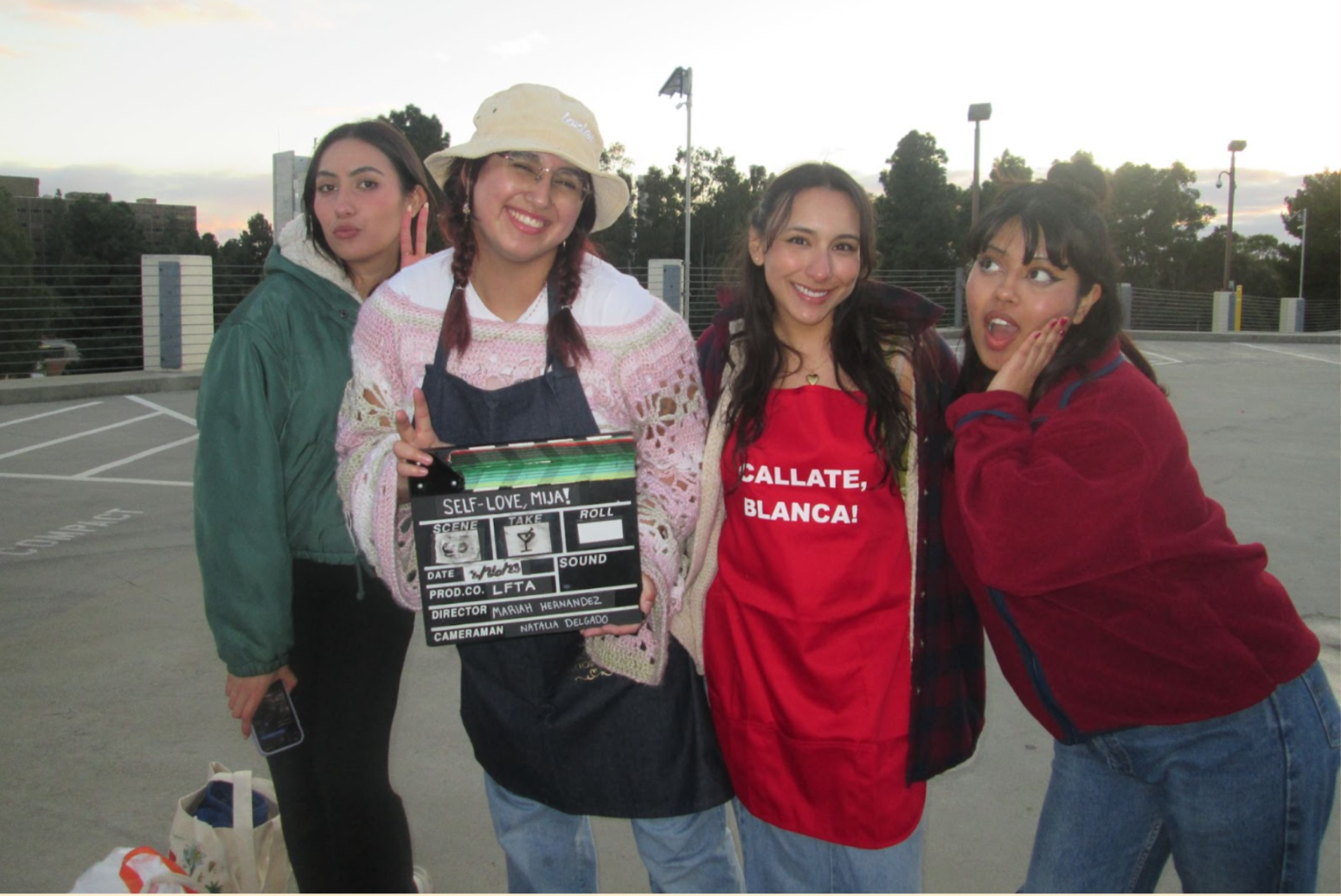
Photo Provided by the Latine Film & Theatre Association
Deyri, who played Elisa in Ni En Mis Sueños and Mrs. Luevano in Sheer Coincidences, said that LFTA helped her see that she does belong at UCLA, and does deserve to call herself an artist.
“Freshman year, imposter syndrome [was one of my biggest struggles.] Coming here, I kept thinking, ‘What if they just accepted me because they needed more diversity?’ Joining LFTA, I guess I really started feeling like my ideas and my stories were validated and accepted. People actually appreciated it. Especially with mine and Karlie’s film, Como Quisiera. People actually liked it!”
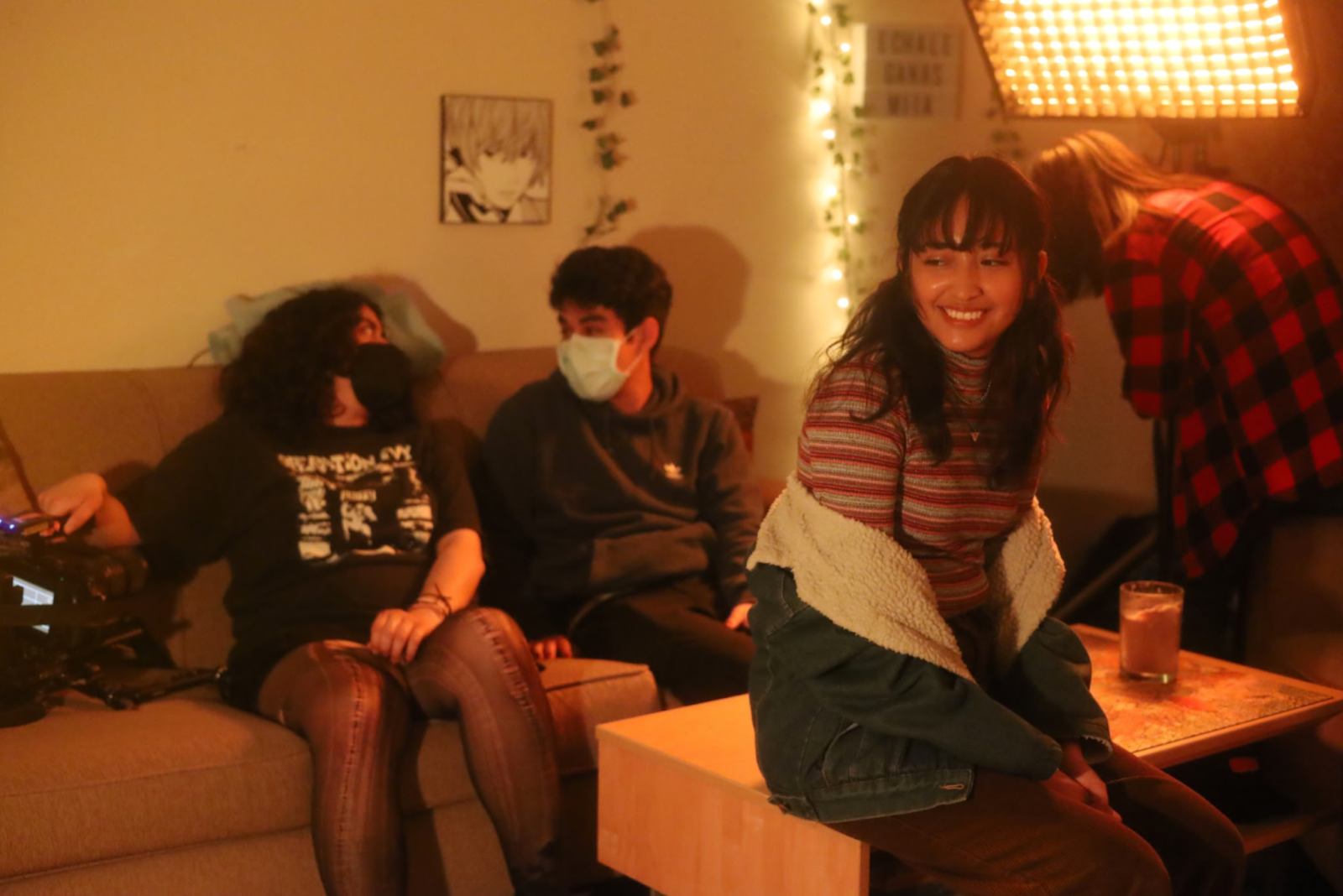
Photo Provided by the Latine Film & Theatre Association
“People are actually interested in what I want to say and what I’m doing. I feel like I am here for a reason. My stories do matter to people.”
Natalia, director of photography for Mariah’s Self Love, Mija!, the mother in Ian Bastida’s play The Scale, and one of the most supportive friends anyone could ask for, said LFTA’s community provided her with a space where she could be proud of her art.
“I’ve changed so much as a person, but also as an artist. It was one of the only places where I felt like I was taken seriously. LFTA has a lot of women in the org. Go women! Haha. But seriously, I feel like that’s a huge thing [in terms of confidence]. Being confident in my art, being confident in myself.”
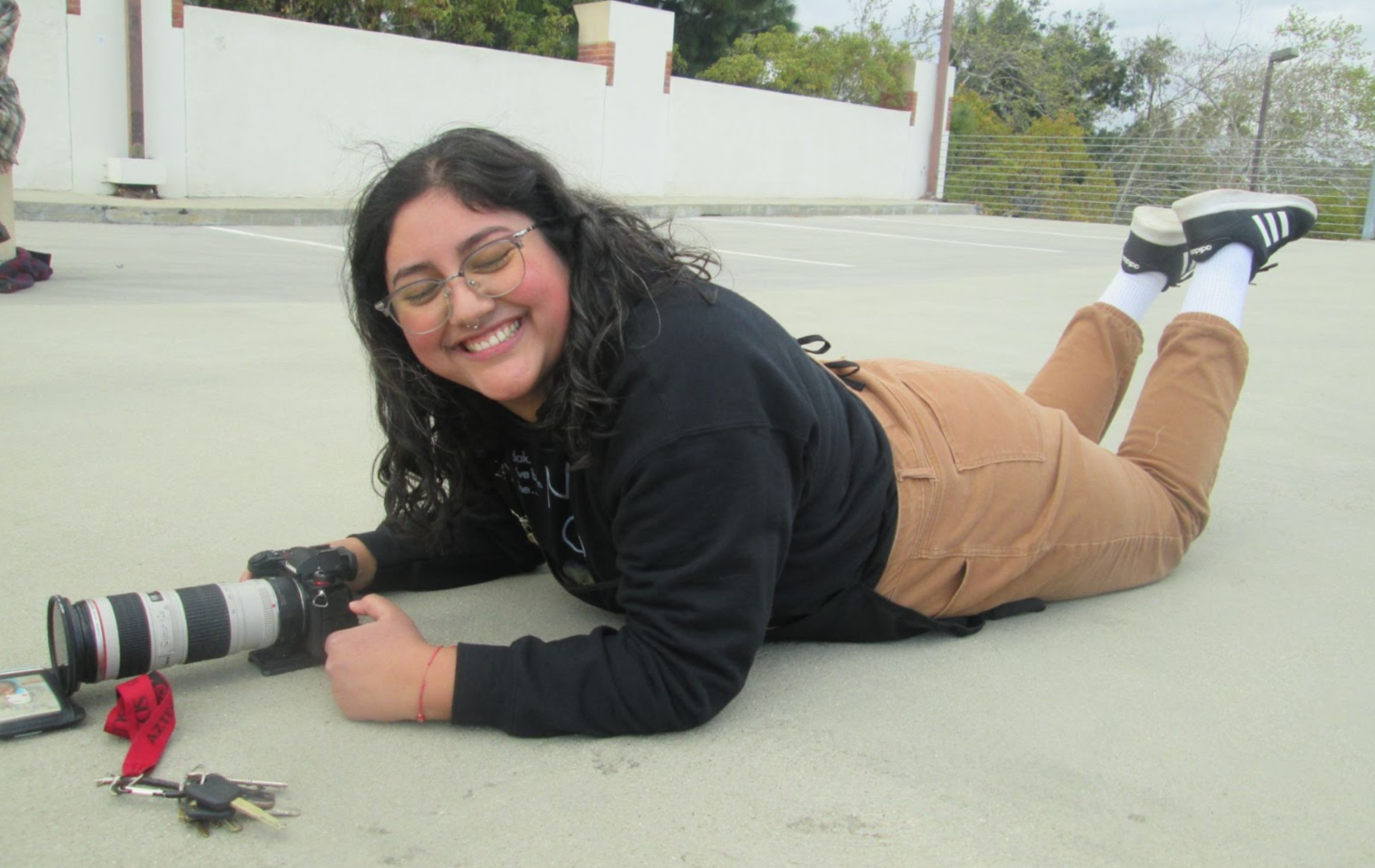
Photo Provided by the Latine Film & Theatre Association
She also recognizes the role LFTA played in helping her see herself as a leader.
“I never thought that I could be a leader, and I feel like last year I proved myself wrong. Me and Alan put our blood, sweat, and tears into LFTA. I find pride in the art that I do today because of LFTA.”
“I learned how to create safe spaces for other people, because I could see how important it was to them. I love being able to create a space for Latine people to feel like they can do something that, historically, they’ve never seen themselves do. It’s so important to create this community for this art. That was, to me, what I got out of it the most. For me, it was the people, and seeing them grow.”
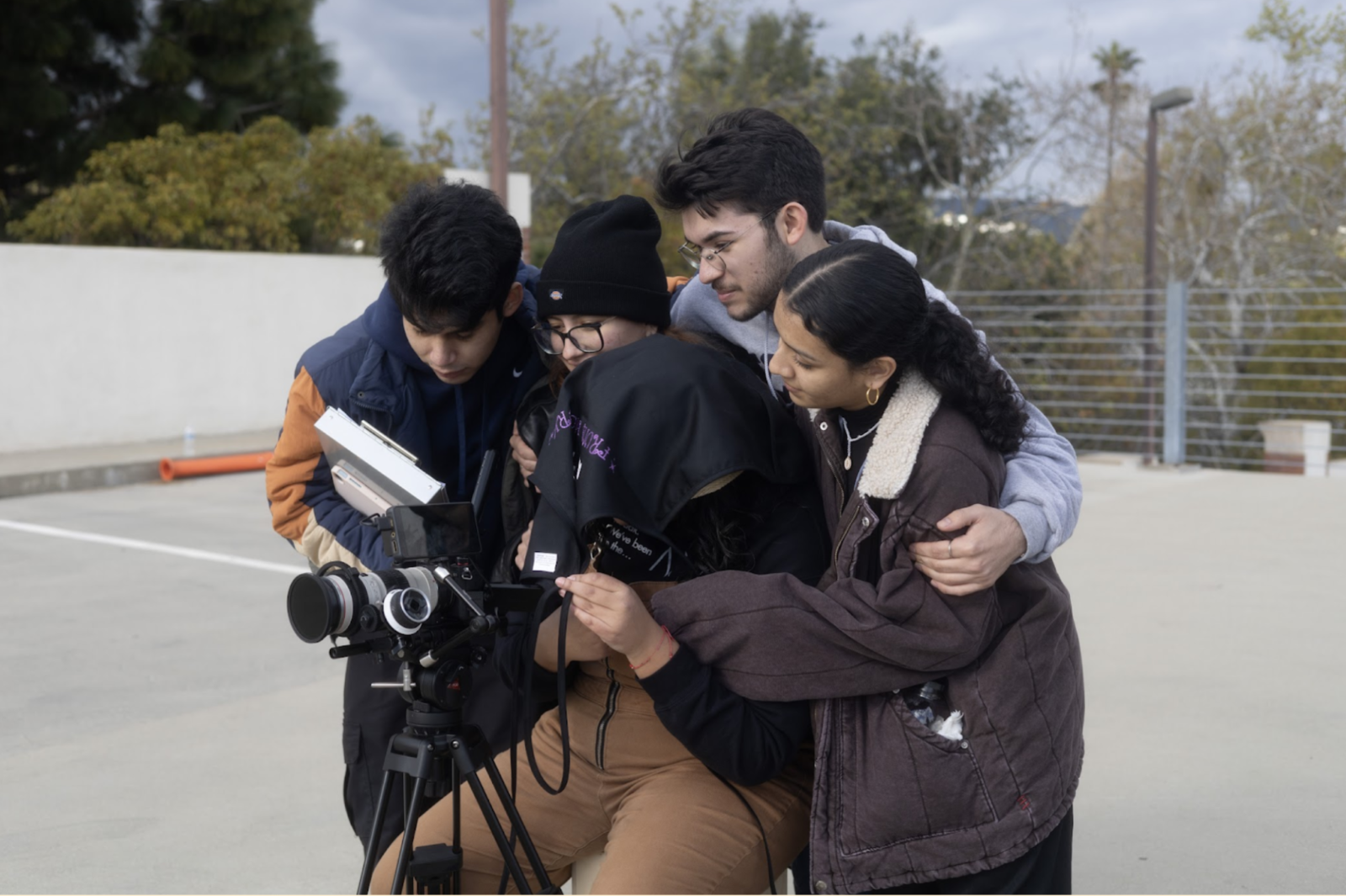
Photo Provided by the Latine Film & Theatre Association
Alan, who played Gabriel in the play Sheer Coincidences and was everywhere doing everything for LFTA throughout the school year, said LFTA was a way to learn about film.
“LFTA was my film school. I learned so much about film through LFTA, and I learned a lot from Natalia. I had some information she didn’t know, she had some information I didn’t know. We swapped, and we kept on helping each other out. I learned how to produce films, and direct them. I remember the night before shooting Meat Lover my junior year, I searched up ‘How to direct?’ I learned that I really like directing.”

Photo Provided by the Latine Film & Theatre Association
LFTA also taught him what kind of leader he is and showed him just how impactful he is as one. He’s the kind of leader who knows how to make anyone love this art the way he does.
“In high school I was always in leadership positions, but there was always someone bigger than me. This was the first time where it was just me and Natalia. We were in charge of everything. It definitely made me more confident and it gave me a lot of friends and really nice people. And watching them grow as creatives, it was really nice. What I’ve accomplished with LFTA is giving people those opportunities, especially for those people who wouldn’t have gotten those opportunities anywhere else.”
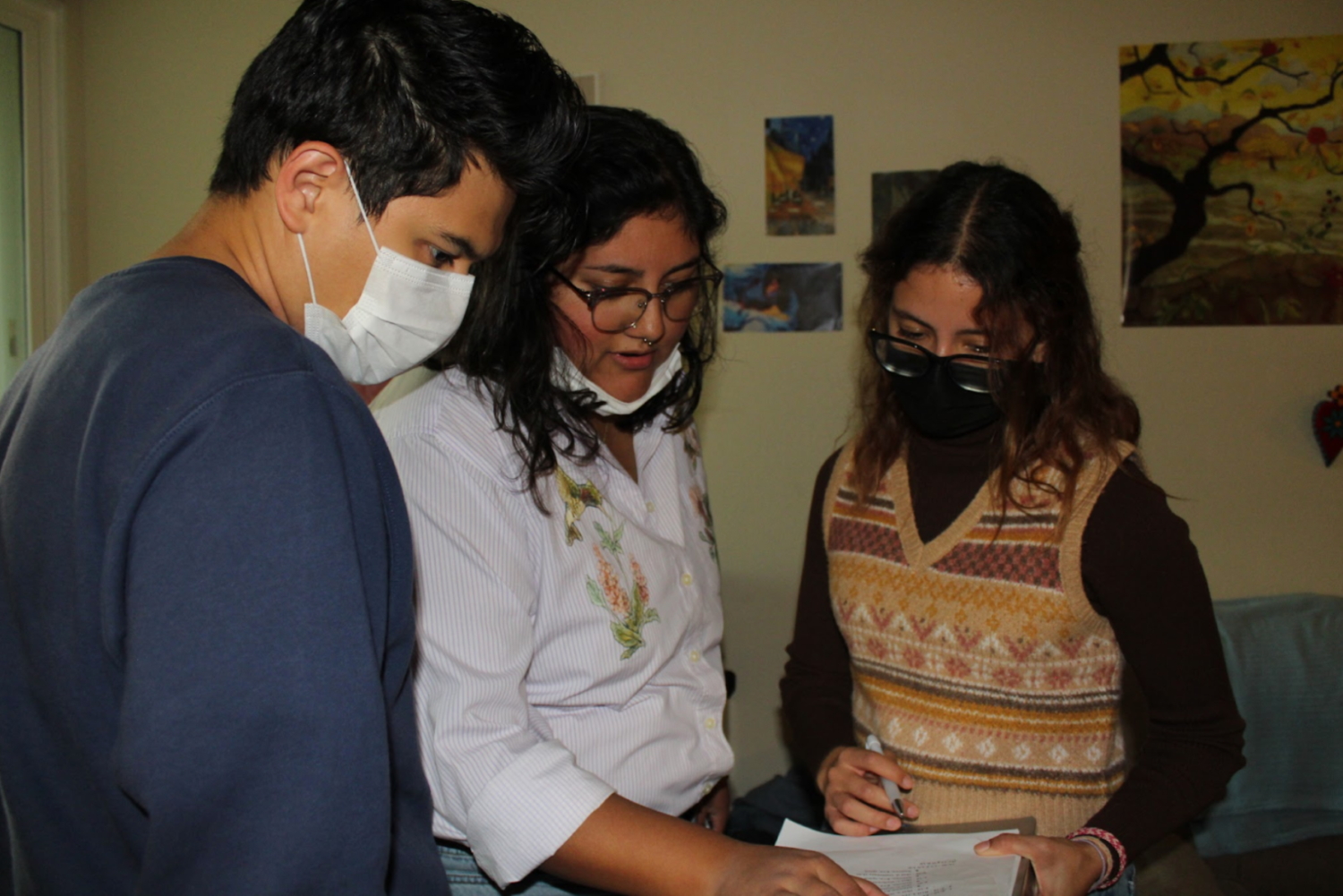
Photo Provided by the Latine Film & Theatre Association
Alan said that LFTA gave him a reason to love these past four years in college.
“I’ve had people tell me that, without LFTA, they don’t know what they would’ve been doing in college, or if they would’ve even liked it. I think that’s the same for me. If I didn’t find it my freshman year, I don’t know where I would’ve been. And I don’t know how my life would’ve been now.”
This year’s Night of Cultura showcase is a celebration of transformation. It’s about the transformation of the characters in the short films and plays. The transformation of the artists that worked on those productions for months. The transformation of the seniors who have been with LFTA since they were freshmen. The continuous transformation of LFTA itself.
“We are an org where we have fun,” Alan shared. “But we’re also in charge of making things. And the things that we’re making, they’re fun. They’re also representative of what we can do as Latine artists.”
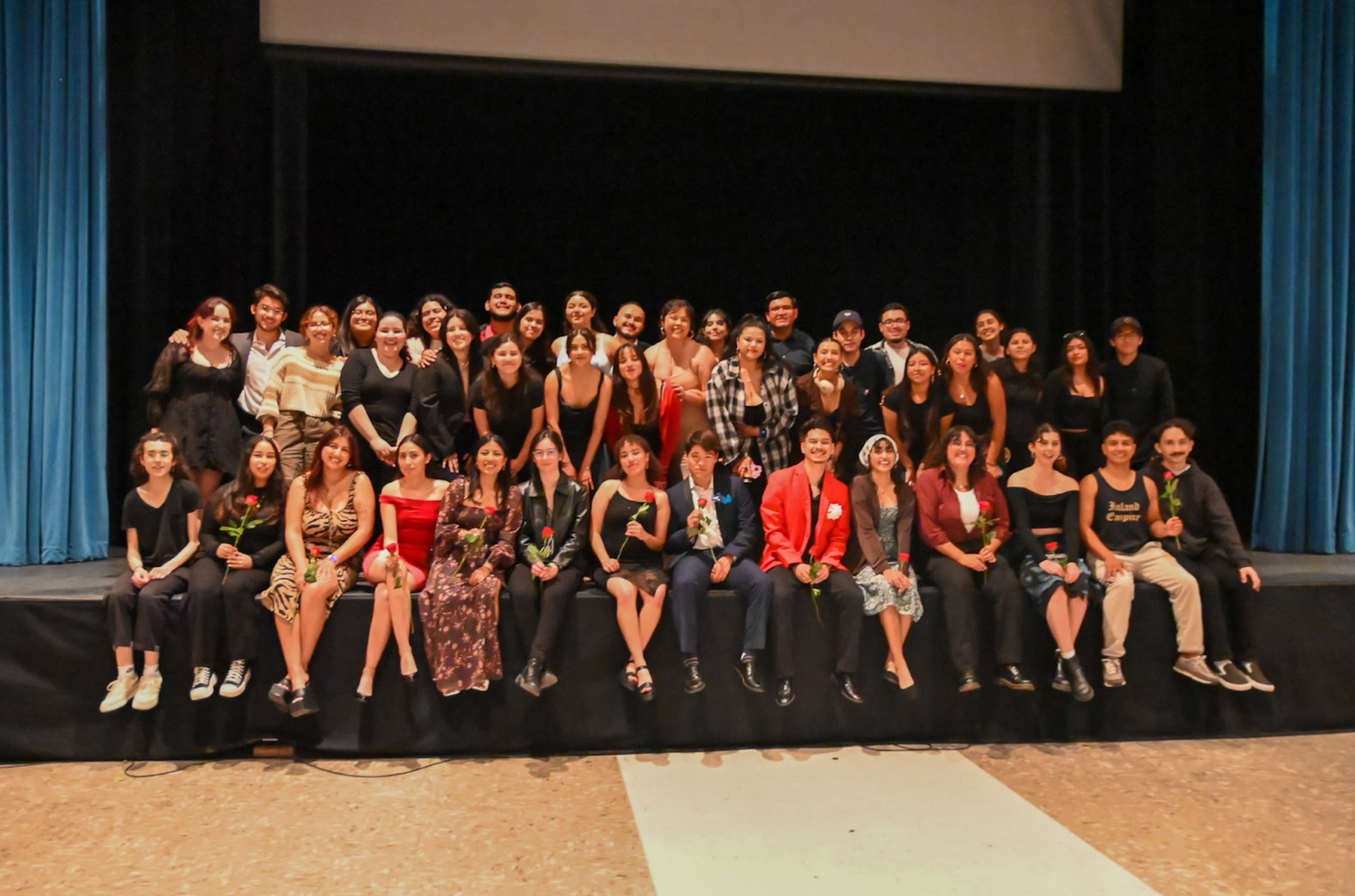
Photo Provided by the Latine Film & Theatre Association

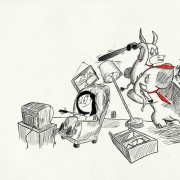
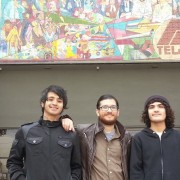
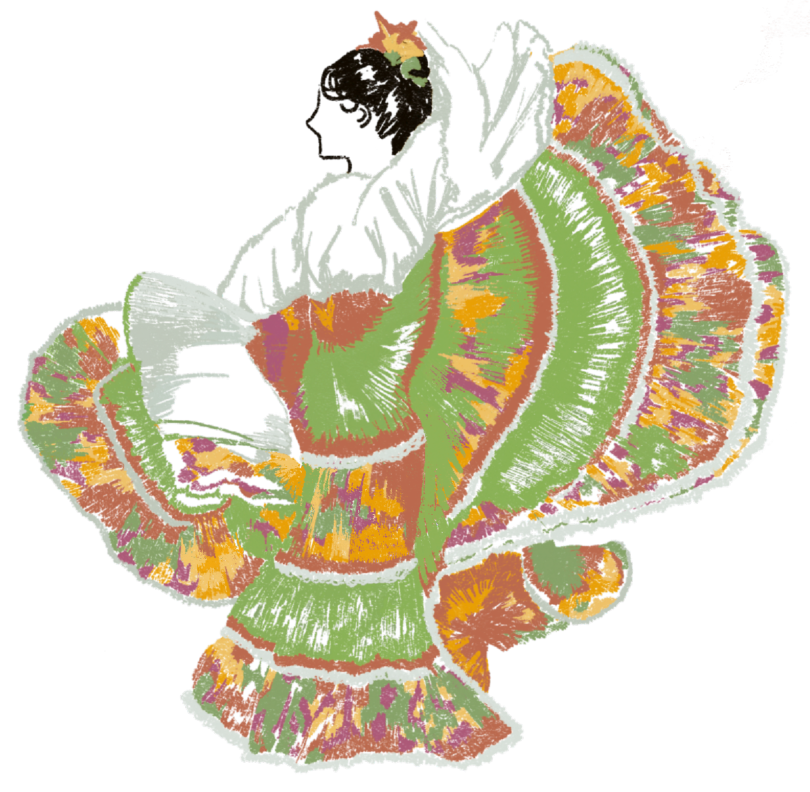
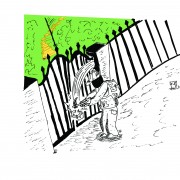
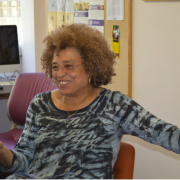
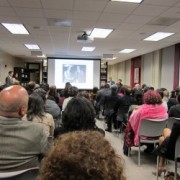

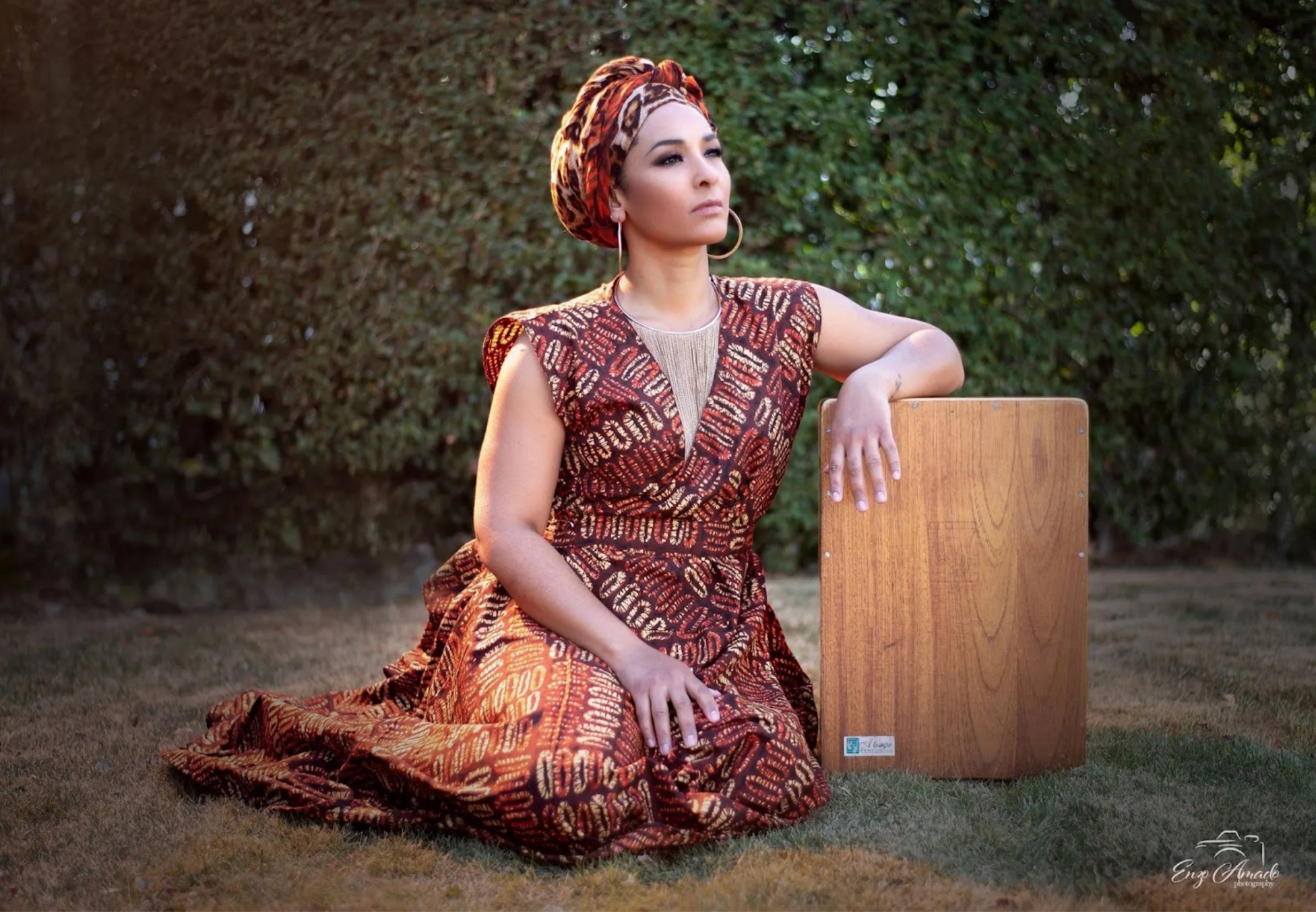
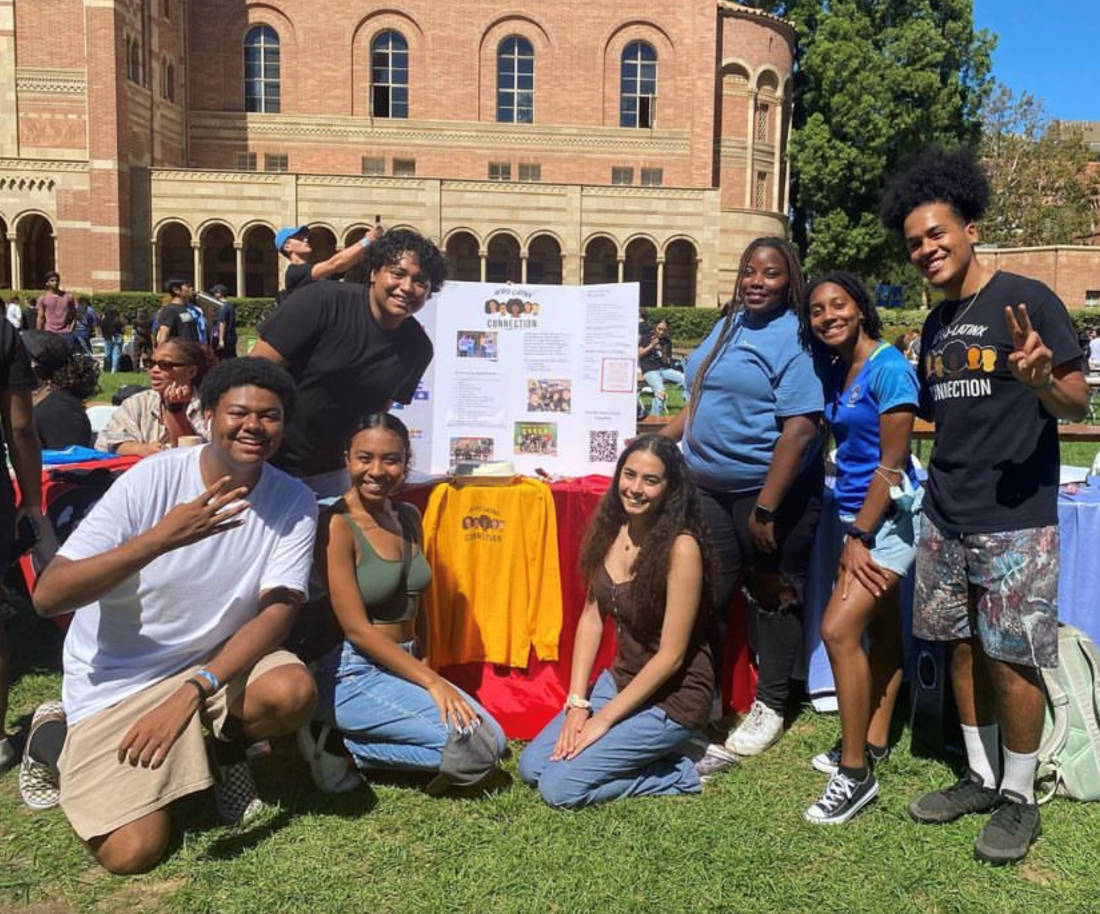
Leave a Reply
Want to join the discussion?Feel free to contribute!